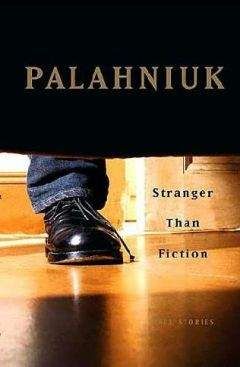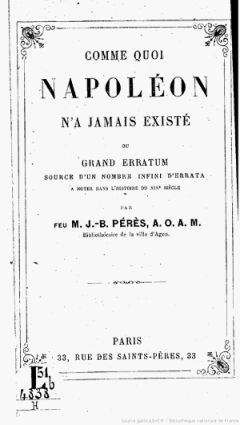Clive Cussler - Spartan Gold
Unfortunately, like their list of synonyms, each of these historical references was in itself a web of facts and double meanings and cross connections.
Breaking only to eat and drink and refresh themselves in the study’s attached bathroom, Sam and Remi kept at it through the morning into late afternoon until finally they decided on a different tack: to focus their attention on a single line of the riddle, hoping its solution would start a domino effect. They decided to try the second line.
“ ‘Tassilo and Pepere Gibbous Baia keep safe the place of Hajj,’ ” Remi recited, absently tapping her temple with a pencil. “Pepere is easy. It’s a French nickname for ‘grandfather.’”
“Right. And unless we’re missing some other significant reference to Tassilo, we can assume it’s a reference to Bavaria—its history, its landmarks, its culture. Something Bavarian.”
“Agreed. How about ‘Gibbous Baia’?”
They’d already devoted two fruitless hours to Romanian history in hopes of stumbling across an epiphany about the Baia area.
“ ‘Gibbous’ means a moon that’s between half and completely full.”
“Are we sure about that part?”
“Yes, a gibbous moon is—”
“No, I’m asking if that’s the only meaning.”
Sam thought for a moment, then frowned. “I’d assumed so. Maybe I shouldn’t have.” He picked up and shoved books around the desk until he found the dictionary. He found the correct page, scanned the entry, then clicked his tongue. “Dumb, Sam. . . .”
“What?”
“ ‘Gibbous’ also means ‘humpbacked.’ So Gibbous and Baia . . .”
Remi was already typing on the laptop. Though much of their in-depth references had come from library sites, their default starting point was good old Google. “Here . . . got something,” she said after a few minutes of reading. “Put the two together and you get this: Baia is part of a phrase—‘men of Baia.’ It’s a rough translation for the word ‘Bavaria.’ ”
“So, the Humpback of Bavaria?” Sam asked.
“No, no . . .” Remi tapped the keyboard again and scanned the search results. “Gotcha! Okay, Tassilo III, the king of Bavaria from 748 to 787, was installed on the throne by Pepin the Short, father of Charlemagne and grandfather of Pepin the Hunchback.”
“Now we’re talking,” Sam replied. “So Tassilo and the hunchback’s grandfather, Pepin the Short, ‘keep safe the place of Hajj.’ ”
“Problem is I can’t find any connection between either of them, or Bavaria, to Mecca.”
“It has to be a metaphor or a synonym,” Sam replied.
“Yes, or maybe an Islamic artifact somewhere in Bavaria.”
Sam, now on his own laptop, did a quick search. “Nope, nothing jumps out. Let’s keep going. Try another line.”
“We’ll go back to the beginning: ‘Anguished House Fellows in amber trapped.’ We’ve already got the etymology and synonyms for ‘anguished,’ ‘House,’ ‘Fellows,’ ‘amber,’ and ‘trapped.’ So how do they all intersect?”
Sam plopped down in a chair and leaned his head back, squeezing the bridge of his nose between his index finger and thumb. “I don’t know. . . . Something about the line is familiar, though.”
“Which part?”
“I don’t know. It’s right there. I can almost see it.”
They sat in silence for nearly a half hour, each wrapped in thought, their minds swirling with connections and possible connections.
Finally Remi looked at her watch. “It’s almost midnight. Let’s get some sleep and come back to it fresh in the morning.”
“Okay. It’s frustrating. I know I’m missing something, I just can’t put my finger on it.”
Four hours later as they lay asleep in Yvette’s guest suite Sam bolted upright in bed and muttered, “There you are!” Remi, a light sleeper, was instantly awake: “What? What’s wrong, Sam?”
“Nothing. I think I’ve got it.”
In their pajamas they returned to the study, turned on the lights, and powered up their laptops. For twenty minutes Sam sat at the keyboard, typing and following links as Remi watched from the corner chair. At last Sam turned around and smiled.
“It’s from a book I read in college—The Days of the Upright by a guy named . . . Roche. He talks about the origin of the word ‘Huguenot.’ ”
“French Calvinists, right?” Remi asked. “Protestants.”
“Right. Pretty big group from the sixteenth to eighteenth century. Anyway, there are a lot of explanations for where the word ‘Huguenot’ comes from. Some think it’s a hybrid—from the German word Eidgenosse, meaning ‘confederate,’ and the name Besan çon Hugues, who was involved in early Calvinist history.
“The etymology most historians subscribe to comes from the Flemish word huisgenooten, which was what some Bible students in Flemish France were nicknamed. Huisgenooten would gather secretly in one another’s homes to study scripture. The name translates as ‘House Fellows.’
Remi stared at him for ten seconds before murmuring, “Sam, that’s brilliant.”
“What would have been brilliant is if I’d come up with it eighteen hours ago.”
“Better late than never. Okay, so we’re talking about Huguenots.”
“Anguished Huguenots,” Sam corrected.
Remi stood up and went to their whiteboard and used the dry-erase marker to circle their list of synonyms for ‘anguished.’ There were dozens. No obvious connection between them and Huguenots jumped out at them.
“So, let’s talk about amber,” Sam said, turning to the second part of the line. “ ‘In amber trapped.’ How do you get trapped in amber?”
They brainstormed this for a few minutes before Remi said, “Let’s try this: What happens when something gets trapped in amber?”
“You die,” Sam offered.
“Before that . . . Immobilized.”
“Frozen in place.”
“R ight . . .” Head down, eyes closed, she paced back and forth. “Frozen in place . . . Like a snapshot.”
Sam, his head resting against the chair’s headrest, leaned forward. “Like a painting.”
“Yes!”
He spun around in his chair and started typing on the laptop. “Painting . . . Huguenots . . .” He scanned the search results.
“Anything?”
“Massacre,” he muttered.
“What?”
“ ‘Massacre’ could be, in a stretch, synonymous with ‘anguished,’ couldn’t it?”
“Sure.”
“Then how about this: a painting by François Dubois called The Saint Bartholomew’s Day Massacre.”
“What’s the context?”
Sam scanned the article, then summarized: “France, in 1572 . . . from August to October of that year Catholic mobs attacked minority Huguenots throughout the country . . .” Sam leaned back in his chair and frowned. “Anywhere between ten thousand and a hundred thousand were killed.”
“If that isn’t anguish I don’t know what is,” Remi murmured. “Okay, so combine that with Bavaria. . . .”
Sam leaned forward and began typing again, this time using for his major search terms “Dubois,” “Saint Bartholomew,” and “Bavaria,” in combination with “day” and “massacre.”
“Might as well throw in our synonyms for ‘Hajj,’” Remi said, then dictated from the whiteboard: “ ‘Mecca,’ ‘pilgrimage,’ ‘Islam,’ ‘pilgrim’ . . .”
Sam finished typing and hit Enter. “A lot of results,” he whispered, scrolling through the page. “Nothing obvious, though.”
“Let’s start subtracting and mixing words from the search.”
For the next hour they did just that, trying permutations of their search terms until finally, near sunrise, Sam found something interesting with the combination of “Saint Bartholomew,” “Bavaria,” and “pilgrim.” He said with a grin, “Lightbulb just popped on.”
“What?” Remi said, then leaned in and read from the screen:
“Saint Bartholomae’s Pilgrim Church, Bavaria, Germany.”
CHAPTER 45
SCHÖNAU, BAVARIA
Unbelievable,” Sam whispered.
He and Remi stepped to the wooden railing of the overlook and stared at the vista below. Finally Remi murmured, “I don’t think the word ‘beautiful’ even begins to capture this, Sam. Why did it take us this long to come here?”
“I have no idea,” he whispered back, then lifted his Canon EOS digital camera and took a picture. They’d been to Bavaria before, but never this area. “Even ‘breathtaking’ doesn’t seem to fit, does it?”
“Not even close. I can almost hear ‘The Sound of Music.’ ”
Below them lay the emerald waters of the Königssee (King’s Lake) Fjord. Measuring just over half a mile at its widest point and bracketed on both sides by thickly forested granite escarpments and jagged snowcapped peaks, the Königssee meandered its way from the village of Schönau in the north down to the Obersee, or Upper Lake, five miles to the south. Long ago severed from the Königssee by a landslide, the Obersee sat tucked away in its own oval valley surrounded by alpine meadows bursting with wildflowers and encircled by tumbling waterfalls, sights that attracted nature lovers and photography buffs the world over. A special boat service ran from Schönau to the Obersee’s Salet docks.
Aside from the occasional wake from the handful of electric tour boats that soundlessly plied the Königssee, the lake’s surface was perfectly calm, a sun-dappled mirror reflecting the greens and grays and ochers of the surrounding forests and cliffs. Everywhere Sam and Remi turned lay yet another perfectly composed alpine postcard.
Two-thirds of the way down the Königssee, where it narrowed to only a few hundred yards before widening again and curving southeast toward the Obersee, Saint Bartholomae’s Pilgrim Church sat in a clearing of trees on the Hirschau Peninsula.
An architectural hybrid of sorts, half of Saint Bartholomae’s Church was an old Bavarian ski lodge with white stucco exterior walls, steeply sloped gray shingle roof, and heavy wooden shutters painted in greens and yellows, while the other half was made up of a cluster of three red-roofed onion domes atop of which further rose two spires: one a windowless dome, the other, sitting nearer the water’s edge, a more traditional steeple, with a sloped hip roof and shuttered slit windows.
“Is it ironic that Hitler also loved this place?” Remi asked, “or just a little scary?”
Berchtesgaden, the municipality in which the Königssee sat, was also home to Adolf Hitler’s mountaintop retreat known as the Eagle’s Nest.
“No one’s immune to beauty,” Sam replied. “Even him, it seems.”
The question was, Sam and Remi knew, aside from the scenery, why exactly were they here?
Though they had deciphered only the first part of the latest riddle, they’d felt confident enough in their solution to immediately call Selma and ask her to arrange passage from Monaco to Bavaria. By midmorning, having thanked Yvette for her hospitality and promised to return and recount their exploration, they were on their way to the Nice airport, from there to Paris, and then to Salzburg, where they rented a car and drove the remaining thirty miles to Schönau am Königssee.
“What time does our boat leave in the morning?” Remi asked.
“Nine. Remind me to check the weather tonight.” Even now in late spring the Königssee valley’s weather was volatile, prone to days that could go from warm sunshine to brooding clouds to snow in the space of an hour. The savvy Königssee visitor was always armed with a spare sweater or Windbreaker.
Given Saint Bartholomae’s location, there were only two ways to reach it, either by boat from Schönau or by hiking in through the surrounding mountain passes. While the latter option piqued their wanderlust they knew it would have to wait for their next visit. Time was not their friend now. While their infiltration of Bondaruk’s estate had put them a step ahead, given how long the man had likely been pursuing the Lost Cellar, and given the scope of his resources, their lead could be short-lived. They’d seen no sign of Kholkov or his men, but still a touch of paranoia seemed warranted. Until they found whatever secrets Saint Bartholomae’s held and were safely away, they’d assume they were being watched. Moreover, they would assume their invasion of Khotyn had enraged an already frustrated Bondaruk. Whatever restraint the man might have thus far shown was probably gone. What they couldn’t predict was, given the lengths to which Bondaruk had already gone, what might he do now?
If the Königssee was the height of alpine beauty, Sam and Remi decided the nearest village, Schönau, epitomized the word “quaint.”
Home to five thousand souls, Schönau, which sat astride the stone-strewn river that fed the Königssee, was a sprawling collection of homes and businesses, each one a Bavarian architectural gem that seemed more chalet than building. On the eastern side of Schönau’s truncated S-shaped harbor, just south of a string of cafés, restaurants, and hotels, sat a curved line of boathouses whose styling seemed torn from the pages of a Vermont covered bridges coffee-table book.
Now, as Sam steered their car down the tree-lined road to Schönau, they could see the day’s last tour boats gliding in and out of the boathouses, their wakes forming translucent fans atop the emerald water.
A few minutes later they pulled into the parking lot of the Hotel Schiffmeister. Fronted by white and red awnings and balconies bursting with red and white and pink flowers, the Schiffmeister’s facade was painted in earth-toned rococo traceries of intertwined flowers and vines and spirals. As the valet saw to their car and the bellhop to their bags, they walked into the lobby and found the front desk. Minutes later they were being shown into their lakefront suite.
They each showered, wrapped themselves in the hotel’s heavy terry cloth robes, then ordered coffee from room service and settled on the balcony overlooking the water. With the sun falling behind the mountains to the west, the lake was backlit in a golden hue and the calm evening air was growing chilled. On the streets and sidewalks below, tourists strolled along, looking in shop windows and taking pictures of the harbor.
Sam powered up his iPhone and tapped into the hotel’s satellite Internet connection. “Something from Selma,” he said, scanning their e-mail. With typical efficiency she had compiled a report on Xerxes I and the Achaemenid Dynasty, one a condensed version, the other more detailed. Sam forwarded both to Remi’s iPhone and they spent the next thirty minutes learning about the ancient Persian king.
The eighth attested ruler of the Achaemenid Dynasty, Xerxes I took the throne at the age of thirty-five and wasted no time living up to his warlike reputation, first crushing a revolt in Egypt, then in Babylon, where he declared the Babylonian Empire abolished and promptly spirited away the golden idol of Bel-Marduk and had it melted down, effectively crushing the empire’s spiritual foundations.



